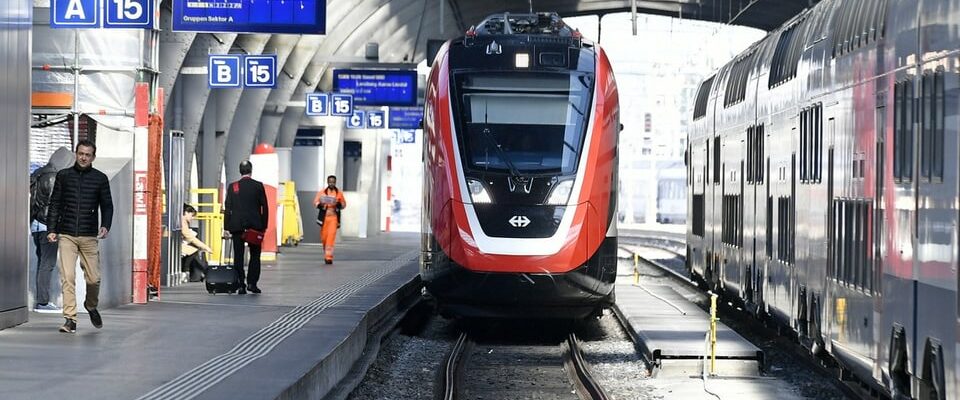- The new SBB double-decker long-distance trains (FV-Dosto) can continue to run on Swiss rails.
- The Federal Office of Transport (BAV) approved the operation of the trains for an unlimited period on Thursday.
- When they were introduced in 2018, the trains caused technical breakdowns and delays.
The previous operating license was limited to the end of 2024. During the approval process, the BAV also implemented orders from a ruling by the Federal Court in December 2021.
After criticism: Trains are handicapped accessible
Among other things, the court commissioned the SBB to check whether people with wheelchairs can use the trains safely without outside help. In addition, the SBB had to ensure that all ramps in the entrance areas of the cars adhere to the prescribed maximum inclination value of 15 percent.
Legend:
The long-distance double-decker train caused dissatisfaction when it was introduced – among other things, there was criticism of the ride comfort: it shook too much.
KEYSTONE / Walter Bieri
This became necessary after a complaint from Inclusion Handicap, the umbrella organization of organizations for people with disabilities in Switzerland. The organization complained that the trains were not wheelchair accessible and that the ramps were too steep. The report from an independent expert concluded that it was possible to get in and out independently, the BAV said.
Introduction was a “forceps birth”
In 2010, the SBB commissioned Bombardier (now Alstom) to purchase initially 59 and later 62 new double-decker trains for long-distance transport – for 1.9 billion francs. The new trains should come into use gradually from December 2013.
The introduction of the newly developed Dosto train from 2018 was accompanied by numerous technical breakdowns and delays. At the time, the SBB spoke of a “forceps birth” and also criticized the manufacturer. Initially, doors got stuck, the operating system crashed, and heating and air conditioning caused problems. Passengers also complained that the carriages sometimes shook uncomfortably.
Reliability improved
In favor of travel comfort, the SBB decided against the originally planned faster curves with the train. Planned travel time reductions of five minutes between Lausanne VD and Bern and two minutes between Winterthur ZH and St. Margrethen SG could therefore not be achieved as planned.
The initially inadequate reliability of the Dosto fleet has improved steadily since 2018, the SBB wrote a year ago. After taking over Bombardier Transportation from 2021, Alstom has made great efforts to further reduce disruptions. Today the trains run, among other things, on the IC1 route between Geneva and St. Gallen and on the IC2 route between Zurich and Lugano.
